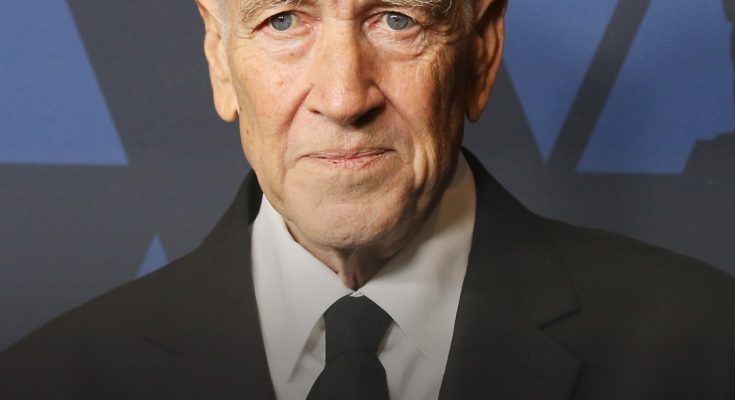David Lynch has sadly passed away at the age of 78.
.jpg_gHIyVm?tr=w-1024,cr-174.0.860.686&config=JTdCJTIyYWx0ZXJuYXRpdmVfdGV4dCUyMiUzQSUyMkdldHR5SW1hZ2VzLTExODM4NzEyNjAlMjAoMSkuanBnJTIyJTJDJTIyY2FwdGlvbiUyMiUzQSUyMkRhdmlkJTIwTHluY2glMjBoYXMlMjBwYXNzZWQlMjBhd2F5JTIwYXQlMjB0aGUlMjBhZ2UlMjBvZiUyMDc2LiUyMENyZWRpdCUzQSUyME1pY2hhZWwlMjBUcmFuJTIwJTJGJTIwR2V0dHklMjIlMkMlMjJjb29yZGluYXRlcyUyMiUzQSU3QiUyMmRlc2t0b3AlMjIlM0ElN0IlMjJsZWZ0JTIyJTNBMC4xNyUyQyUyMnRvcCUyMiUzQTAlMkMlMjJyaWdodCUyMiUzQTAuODQlMkMlMjJib3R0b20lMjIlM0EwLjY3JTdEJTJDJTIydGFibGV0JTIyJTNBJTdCJTIybGVmdCUyMiUzQW51bGwlMkMlMjJ0b3AlMjIlM0FudWxsJTJDJTIycmlnaHQlMjIlM0FudWxsJTJDJTIyYm90dG9tJTIyJTNBbnVsbCU3RCUyQyUyMm1vYmlsZSUyMiUzQSU3QiUyMmxlZnQlMjIlM0FudWxsJTJDJTIydG9wJTIyJTNBbnVsbCUyQyUyMnJpZ2h0JTIyJTNBbnVsbCUyQyUyMmJvdHRvbSUyMiUzQW51bGwlN0QlN0QlMkMlMjJ3aWR0aCUyMiUzQTEwMjQlMkMlMjJoZWlnaHQlMjIlM0E2ODMlMkMlMjJ1dWlkJTIyJTNBJTIyMTZhNWJmZGQtYjBiZS00ZWJhLTgxNmEtYjI4YTU3MjMxM2E1X193cC1jb250ZW50JTJGdXBsb2FkcyUyRkdldHR5SW1hZ2VzLTExODM4NzEyNjAoMSkuanBnX2dISXlWbSUyMiU3RA==)
The groundbreaking writer-director is perhaps best known for his works Blue Velvet, Mulholland Drive, and Twin Peaks — all of which helped to redefine American cinema and television.
Lynch’s death was confirmed via a statement posted to his Facebook page, which read: “It is with deep regret that we, his family, announce the passing of the man and the artist, David Lynch.
“We would appreciate some privacy at this time. There’s a big hole in the world now that he’s no longer with us. But, as he would say, ‘Keep your eye on the donut and not on the hole.’ … It’s a beautiful day with golden sunshine and blue skies all the way.”
In 2024, Lynch disclosed that he was suffering from emphysema, a condition stemming from his years of smoking, The Hollywood Reporter reports. He shared that his illness had made it impossible for him to leave home, expressing concern about the risks posed by Covid.
Early Life and Entry into Film
David Keith Lynch was born on January 20, 1946, in Missoula, Montana.

His father, Donald, was a research scientist, and his mother, Edwina, worked as an English teacher. The family’s frequent relocations across the United States — from Montana to Idaho, Washington, and Virginia — shaped Lynch’s perspective on small-town life, a recurring theme in his later work.
Lynch’s journey into the arts began with painting, before moving to Los Angeles in 1971 to study filmmaking at the AFI’s Conservatory for Advanced Film Studies, where he would create short films.
His 1977 feature debut, Eraserhead – which took him years to create – became a cult classic on the midnight movie circuit, showcasing his singular, unsettling style.
A Career of Highs and Lows
Lynch broke into mainstream Hollywood with The Elephant Man (1980), a deeply moving biopic about the life of a deformed sideshow performer. Produced by Mel Brooks’ company, the film earned eight Academy Award nominations, including Lynch’s first nod for Best Director.

However, his next major project, a 1984 adaptation of Frank Herbert’s Dune, was a commercial disaster. Despite the film’s failure, Lynch rebounded with Blue Velvet (1986), a haunting exploration of small-town darkness, and Wild at Heart (1990), a violent and provocative road movie that won the Palme d’Or at the Cannes Film Festival.
Nobody could mistake Lynch’s work for anyone else’s. Blending elements of surrealism with noir and horror, Lynch created dreamlike, often disturbing worlds. Critic Pauline Kael once called him “the first populist surrealist,” likening his approach to the works of Luis Buñuel and Salvador Dalí.
His films often felt timeless, disconnected from any specific era or locale, leaving viewers mesmerized but unsettled. Lynch’s narratives were as enigmatic as M.C. Escher’s drawings and as haunting as Grimms’ fairy tales. While critics debated whether his films followed a logical thread, few doubted the power of his imagination.
Accolades and Legacy
Lynch’s work has been celebrated internationally, even as it sometimes divided domestic audiences. In a 2012 poll conducted by Sight & Sound magazine, nearly 900 experts ranked Mulholland Drive (2001) at No. 28 and Blue Velvet (1986) at No. 69 on the list of the greatest films ever made. However, none of his works appeared in the American Film Institute’s most recent top 100 list.
The Academy also showed limited recognition for Lynch’s work. Despite four Oscar nominations—for The Elephant Man, Blue Velvet, and Mulholland Drive—he did not win any competitive awards. In 2019, he received an honorary Oscar celebrating his extraordinary career.
Late Career and Personal Pursuits
Lynch’s cinematic output slowed in his later years. His 2006 feature Inland Empire failed to resonate with critics and audiences alike, marking the end of his major film projects. His 2017 short, What Did Jack Do?, in which he interrogated a monkey, captured more attention for its eccentricity than its artistry.

He revisited his iconic series Twin Peaks with a Showtime reboot in 2017, though it failed to replicate the cultural impact of the original ABC series from 1990-91.
Instead of filmmaking, Lynch shifted his focus to other passions, including painting, coffee production, and transcendental meditation. He credited meditation with transforming his life, as he recounted in his 2018 memoir Room to Dream: “Everything in me changed when I started meditating. Within two weeks of starting, Peggy [his first wife, Peggy Lentz] comes to me and says … ‘Your anger. Where did it go?’”
A Singular Voice in Film
Lynch leaves behind an indelible legacy. His works, spanning the macabre and the mundane, revealed the unsettling truths beneath the surface of American life. His influence on film, television, and art remains unparalleled, ensuring his status as one of the most distinctive and visionary storytellers of all time.
The famed director is survived by two daughters and two sons.
Our thoughts are with Lynch’s family, friends, and fans at this time.



